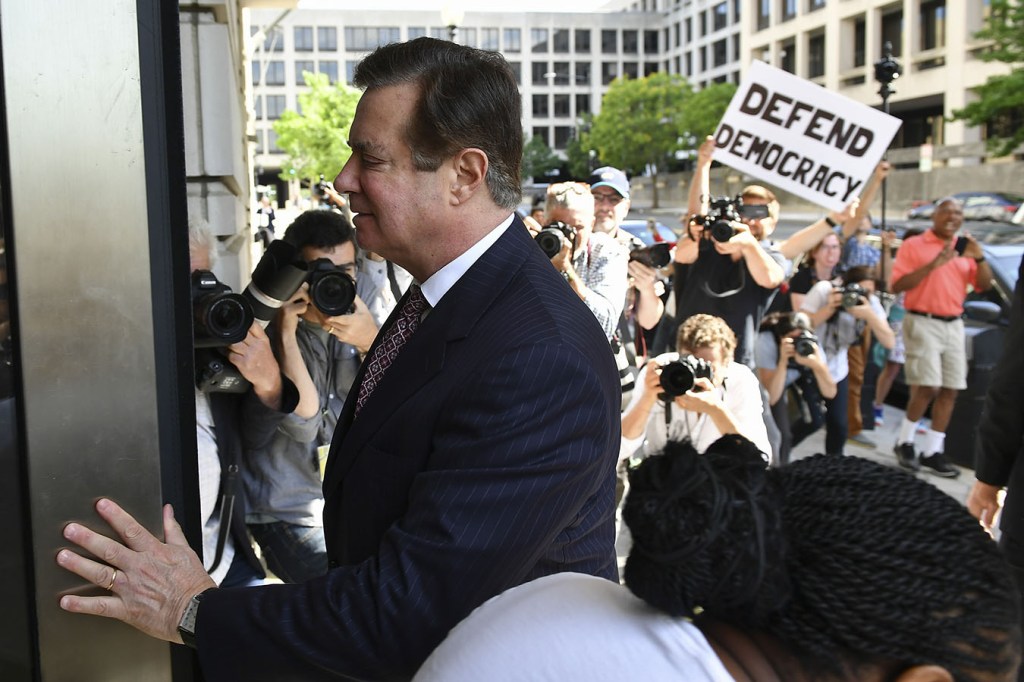WASHINGTON — It’s probably safe to say that the scrum of reporters — noses and lenses pressed up to the glass doors of the E. Barrett Prettyman Federal Courthouse in Washington, D.C. — were not there to cover a hearing regarding Kentucky’s work requirements for some Medicaid recipients.
No, the news satellite trucks parked outside and long queue of spectators stacked up against the building where there to catch a glimpse of Paul Manafort, President Donald Trump’s former campaign chairman, who was appearing that same morning before another judge in another federal courtroom.
But while the hearing for the Stewart v. Azar case might not have generated as much buzz as Manafort’s, it has the potential to impact many more people. Kentucky itself says as many as 95,000 enrollees would likely lose coverage.
Judge James E. Boasberg acknowledged that he wasn’t presiding over the flashiest case in the courthouse.
“I guess the Paul Manafort overflow room was full so you decided to come in here,” he said.
Even so, Boasberg’s courtroom was packed, with about 65 people inside and a few others waiting outside.
People started to line up for entry more than 90 minutes before the hearing’s 11 a.m. start. They huddled in the cream-colored hallway near its marble pillars to discuss health policy — and the Manafort scene. By 10:30 a.m., a security guard arrived on the scene to shush the assembled crowd, complaining that she could hear their chatter from “every level” of the courthouse.
Who knew Medicaid wonks were such a rowdy bunch?
There was a lot at stake, though. The case’s outcome could reverberate across the country and help determine how much authority the Trump administration has to unilaterally change Medicaid.
Medicaid is the federal-state health insurance program for low-income and disabled people. Kentucky expanded Medicaid under the Affordable Care Act, but got approval from the Trump administration this year to require healthy adults who gained that coverage to prove that they are working, volunteering or taking care of family members for at least 80 hours each month.
Three advocacy organizations sued the federal government on behalf of 15 Kentucky Medicaid recipients who said they would lose their coverage if the work requirements, and some other aspects of Kentucky’s plan, were implemented.
The crux of the argument boiled down to this: What is the purpose of Medicaid?
Ian Heath Gershengorn, the attorney arguing on behalf of the Medicaid recipients, said the Kentucky plan went too far. Instead of tweaking some things to make Medicaid better or allow it to serve more people, he argued that Kentucky was fundamentally turning it away from a program designed to improve medical access.
The main goal of the Medicaid statute, according to Boasberg, was to furnish “medical assistance” to people. How then could stripping coverage from 95,000 individuals fit that definition, he asked.
Justice Department attorney Ethan Davis said people who lost their coverage because of the work requirement would find it in the private or employer-sponsored market. Plus, the secretary of Health and Human Services had interpreted Kentucky’s plan to be consistent with Medicaid’s, he added.
Davis also said if Kentucky’s work requirements were struck down, it would discourage other states from expanding their Medicaid programs.
Boasberg said he would try to have a decision by the end of June. Kentucky’s work requirements are scheduled to go into effect July 1.







